Visiting coffee shops is a ritual to any British coffee lovers routinely adhered.  According to coffee shops in the UK, Britain’s coffee shop culture is full of beans. The UK coffee shop market has enjoyed its biggest period of growth since 2008. Over the last five years, the market rose by 37%, up from £2.4 billion in 2011 to reach an impressive £3.4 billion in 2016. What is more, between 2015 and 2016 sales increased a spectacular 10.4% – the biggest year-on-year boost witnessed in the last five years.
According to coffee shops in the UK, Britain’s coffee shop culture is full of beans. The UK coffee shop market has enjoyed its biggest period of growth since 2008. Over the last five years, the market rose by 37%, up from £2.4 billion in 2011 to reach an impressive £3.4 billion in 2016. What is more, between 2015 and 2016 sales increased a spectacular 10.4% – the biggest year-on-year boost witnessed in the last five years.
Blendly is a speciality coffee roaster that specialises in creating speciality coffee blends for the growing market. Coffee is at the heart of a great coffee chain all over the world. Blendly allow its customers to select and make a coffee blend unique according to their choice of beans and their best blend
Blendly also offers a unique management service to there clients helping  manage inventory across all the sales channels, – The Company provide Commodity based planning as well as Logistics, Distribution and Inventory management as well as developing new analytic to help chains better plan and manage footfall. “Britain’s appetite for coffee shops continues. Much of the growth we’ve seen in recent years is driven by habitual coffee drinkers and the continually increasing number of coffee retailers that are now ubiquitous on British high streets
manage inventory across all the sales channels, – The Company provide Commodity based planning as well as Logistics, Distribution and Inventory management as well as developing new analytic to help chains better plan and manage footfall. “Britain’s appetite for coffee shops continues. Much of the growth we’ve seen in recent years is driven by habitual coffee drinkers and the continually increasing number of coffee retailers that are now ubiquitous on British high streets
Coffee is a potent source of healthful antioxidants. In other words, antioxidants help keep us healthy at the micro-level by protecting our cells from damage. Finally, chlorogenic acid, an important antioxidant found almost exclusively in coffee, is also thought to help prevent cardiovascular disease.
 According to Mintel The UK consumers’ love of coffee shops, for some, the draw of the kitchen remains too tempting. Half (51%) of coffee drinkers prefer to drink hot drinks at home rather than out-of-home, including 55% of men and 47% of women. – The opportunity to drink and post your own coffee blend has much appeal to coffee customers. Creating your own coffee and developing your own coffee blend for your customer , is part of developing your business and your supply chain to be unique to the people that you serve as most companies now understand that there is no one size fits all when it comes to developing your products and services and extending the possibilities of extending this service from the coffee shop to your customers kitchen offers greater opportunities in building trust and developing better services based around customer choice.
According to Mintel The UK consumers’ love of coffee shops, for some, the draw of the kitchen remains too tempting. Half (51%) of coffee drinkers prefer to drink hot drinks at home rather than out-of-home, including 55% of men and 47% of women. – The opportunity to drink and post your own coffee blend has much appeal to coffee customers. Creating your own coffee and developing your own coffee blend for your customer , is part of developing your business and your supply chain to be unique to the people that you serve as most companies now understand that there is no one size fits all when it comes to developing your products and services and extending the possibilities of extending this service from the coffee shop to your customers kitchen offers greater opportunities in building trust and developing better services based around customer choice.
The fact that half of coffee drinkers prefer to drink hot drinks at home could suggest that the range of beverages for at-home consumption may, in fact, be so well-established in the retail channel that more consumers can now recreate the coffee shop experience without having to leave the comforts of home.” And it offers coffee shop owners the opportunity to develop there retail channels into this highly engaging marketplace.
Creating your own coffee and developing your own coffee blend for your  customer , is part of developing your business and your supply chain to be unique to the people that you serve as most companies now understand that there is no one size fits all when it comes to developing your products and services and extending the possibilities of extending this service from the coffee shop to your customers kitchen offers greater opportunities in building trust and developing better services based around customer choice. The fact that half of coffee drinkers prefer to drink hot drinks at home could suggest that the range of beverages for at-home consumption may, in fact, be so well-established in the retail channel that more consumers can now recreate the coffee shop experience without having to leave the comforts of home.” And it offers coffee shop owners the opportunity to develop there retail channels into this highly engaging marketplace.
customer , is part of developing your business and your supply chain to be unique to the people that you serve as most companies now understand that there is no one size fits all when it comes to developing your products and services and extending the possibilities of extending this service from the coffee shop to your customers kitchen offers greater opportunities in building trust and developing better services based around customer choice. The fact that half of coffee drinkers prefer to drink hot drinks at home could suggest that the range of beverages for at-home consumption may, in fact, be so well-established in the retail channel that more consumers can now recreate the coffee shop experience without having to leave the comforts of home.” And it offers coffee shop owners the opportunity to develop there retail channels into this highly engaging marketplace.
New research has been published Wednesday, by Research Without Borders reveals the value and work that is added to the British economy from people working out of coffee shops and the coining of a new term, the “Coffice.” The size of the “Coffice” economy is extensive, as four out of five Brits have worked from a coffee shop and do so regularly.



 and a half hours working from a coffee shop every week and it’s not just start-ups or self-employed workers doing so.‘We each spend an average of £2,160 a year working from coffee shops – but we close business deals worth £14.5bn to the UK economy’ Findings from the research included:
and a half hours working from a coffee shop every week and it’s not just start-ups or self-employed workers doing so.‘We each spend an average of £2,160 a year working from coffee shops – but we close business deals worth £14.5bn to the UK economy’ Findings from the research included: what might be a common assumption that the self-employed may be more partial to working in a coffee shop, three in four employees in large-sized businesses (250+ employees) often decide to shun the office for the coffee shop, with the approval of their bosses no less.
what might be a common assumption that the self-employed may be more partial to working in a coffee shop, three in four employees in large-sized businesses (250+ employees) often decide to shun the office for the coffee shop, with the approval of their bosses no less. drink of choice? In a thoroughly UN-British turn of events, only 8 per cent of us choose a cup of tea to power our work. In fact, it is the Italian cappuccino that fires British business (26 per cent), closely followed by a latte (21 per cent).
drink of choice? In a thoroughly UN-British turn of events, only 8 per cent of us choose a cup of tea to power our work. In fact, it is the Italian cappuccino that fires British business (26 per cent), closely followed by a latte (21 per cent).
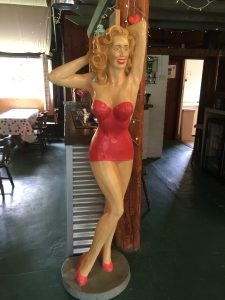 Strangely comforting….
Strangely comforting….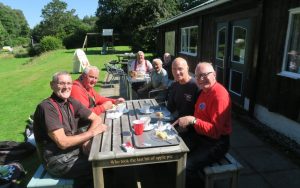 tended tour of the Highlands – or a group of locals looking for a Pleasant afternoon Lunch in the Perthshire countryside The The Tullybannocher Café is a destination not to be missed
tended tour of the Highlands – or a group of locals looking for a Pleasant afternoon Lunch in the Perthshire countryside The The Tullybannocher Café is a destination not to be missed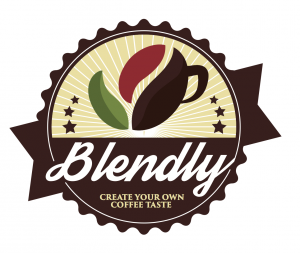 coffee that allows The Tullybannocher Cafe guests to relax after a leisurely browse around the gift area and shop were you will find a variety of items; jars of preserves, picture frames, candles, soft toys, and wall plaques to make you smile.
coffee that allows The Tullybannocher Cafe guests to relax after a leisurely browse around the gift area and shop were you will find a variety of items; jars of preserves, picture frames, candles, soft toys, and wall plaques to make you smile. Combination Travel and coffee shops have cropped up in all corners of the world.
Combination Travel and coffee shops have cropped up in all corners of the world.

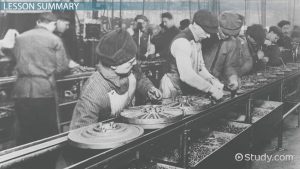 While traditional brands are looking to grab more of the global industry for themselves, based on traditional methods of scale – with a movement towards mergers between large coffee manufacturers and roasters.
While traditional brands are looking to grab more of the global industry for themselves, based on traditional methods of scale – with a movement towards mergers between large coffee manufacturers and roasters. that in entrenched in the economics of scale, its ability to grasp the advantages of economies of choice, is being met by new types of organisations that are offering more transparent services.
that in entrenched in the economics of scale, its ability to grasp the advantages of economies of choice, is being met by new types of organisations that are offering more transparent services.
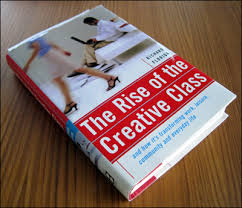 etter understanding of taste and cost, – Today’s coffee customer understand more about the coffee and the Baristas that serve it
etter understanding of taste and cost, – Today’s coffee customer understand more about the coffee and the Baristas that serve it services and can advise the new type of Speciality coffee chain on cost and taste, – Blendly Services have been developed around the economies of choice allowing greater transparency around the coffee offering
services and can advise the new type of Speciality coffee chain on cost and taste, – Blendly Services have been developed around the economies of choice allowing greater transparency around the coffee offering
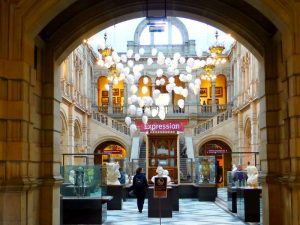 Kelvingrove Art Gallery and Museum houses one of Europe’s great art collections. It is amongst the top three free-to-enter visitor attractions in Scotland and one of the most visited museums in the United Kingdom outside of London.
Kelvingrove Art Gallery and Museum houses one of Europe’s great art collections. It is amongst the top three free-to-enter visitor attractions in Scotland and one of the most visited museums in the United Kingdom outside of London.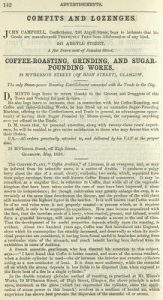
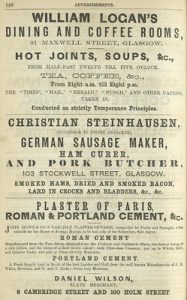

 difference lies in our genetic composition, especially within our sensory receptors. It means that the coffee you serve is a determination of as much the environment as it is blend. Letting your customers understand what is in the blend allows your customer to better associate your and your brand
difference lies in our genetic composition, especially within our sensory receptors. It means that the coffee you serve is a determination of as much the environment as it is blend. Letting your customers understand what is in the blend allows your customer to better associate your and your brand Working with Blendly you can engineer a taste that suits you or your customer all our blends are loved by many and offer a great starting point all coffee drinkers but remember how we taste coffee and what we taste is different to each individual and the taste of the product in Unique to them
Working with Blendly you can engineer a taste that suits you or your customer all our blends are loved by many and offer a great starting point all coffee drinkers but remember how we taste coffee and what we taste is different to each individual and the taste of the product in Unique to them with a lauadge that customers associated with the you delivering the best coffee in the world.
with a lauadge that customers associated with the you delivering the best coffee in the world.

 the types of freelancers and creative class workers we find in places like The Proud East today.
the types of freelancers and creative class workers we find in places like The Proud East today.